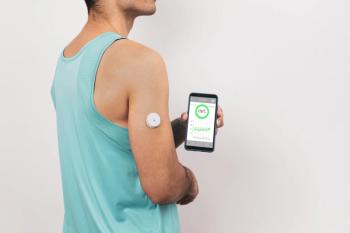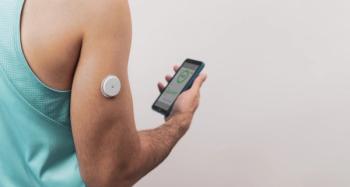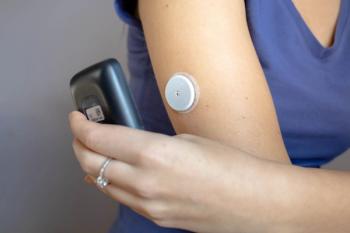
Automated Insulin Delivery Could Help Pregnant Women With T1D Improve Glycemic Control
Hybrid closed-loop insulin therapy adjusts insulin doses every 10 to 12 minutes by using a smartphone algorithm to communicate with continuous glucose monitoring devices and insulin pump systems.
Pregnant women with type 1 diabetes (T1D) who use hybrid closed-loop insulin therapy that is based on a smartphone algorithm are able to manage their blood sugar better than when using more traditional insulin pumps or multiple daily injections, according to recent research published in the New England Journal of Medicine.1
The study data, which is being presented at the European Association for the Study of Diabetes meeting in Hamburg, Germany from October 2 to 6, was supported by the Diabetes Research & Wellness Foundation and the diabetes research nonprofit JDRF. The researchers noted that this technology should now be offered to all pregnant women with T1D.
“Previous studies have confirmed that every extra hour spent in the blood sugar target range reduces the risks of premature birth, being too large at birth and need for admission to neonatal intensive care unit,” Helen Murphy, lead author on the study, said in a release.2 “This technology is game changing, in that it will allow more women to have safer, healthier, more enjoyable pregnancies, with potential for lifelong benefits for their babies.”
Investigators conducted a multi-center, controlled trial that examined hybrid closed-loop insulin therapy in pregnant women with T1D who had a glycated hemoglobin level of at least 6.5%. The therapy, which uses an algorithm to communicate with continuous glucose monitoring (CGM) devices and insulin pump systems, adjusts insulin doses every 10 to 12 minutes based on current blood sugar levels.
The study took place at 9 National Health Service hospitals in England, Scotland, and Northern Ireland for 24 weeks. The study cohort included 124 women between the ages of 18 to 45 who managed their T1D with daily insulin therapy. The primary study outcome was the percentage of time in the pregnancy-specific target glucose range as measured by CGM from 16 weeks’ gestation until delivery.
Investigators found that the hybrid closed-loop insulin therapy helped significantly reduce blood sugar levels throughout the study period. Women who used the therapy spent more time in the target range compared to traditional methods of insulin delivery, totaling an additional 2.5 to 3 hours every day.
Additionally, the women who used the technology were able to achieve these improvements without the use of additional insulin, gained 7.7 pounds less weight, and were less likely to experience blood pressure complications.
Study limitations include not being able to examine baby health outcomes due to small study size, and results being specific to the CamAPS FX technology, which can’t be extrapolated to other closed-loop systems.
“For a long time, there has been limited progress in improving blood sugars for women with type 1 diabetes, so we’re really excited that our study offers a new option to help pregnant women manage their diabetes,” said Murphy. “We know that for women with type 1 diabetes, unborn babies are exquisitely sensitive to small rises in blood sugars, so keeping blood sugar levels within the normal range during pregnancy is crucial to reduce risks for the mother and child.”
References
1. Lee TTM, Collett C, Bergford S, et al. Automated Insulin Delivery in Women with Pregnancy Complicated by Type 1 Diabetes [published online ahead of print, 2023 Oct 5]. N Engl J Med. 2023;10.1056/NEJMoa2303911. doi:10.1056/NEJMoa2303911
2. UK study shows hybrid closed-loop technology improved maternal glucose levels during pregnancy complicated by type 1 diabetes. News Release. EurekAlert! October 5, 2023. Accessed October 11, 2023. https://www.eurekalert.org/news-releases/1003774.
Newsletter
Pharmacy practice is always changing. Stay ahead of the curve with the Drug Topics newsletter and get the latest drug information, industry trends, and patient care tips.























